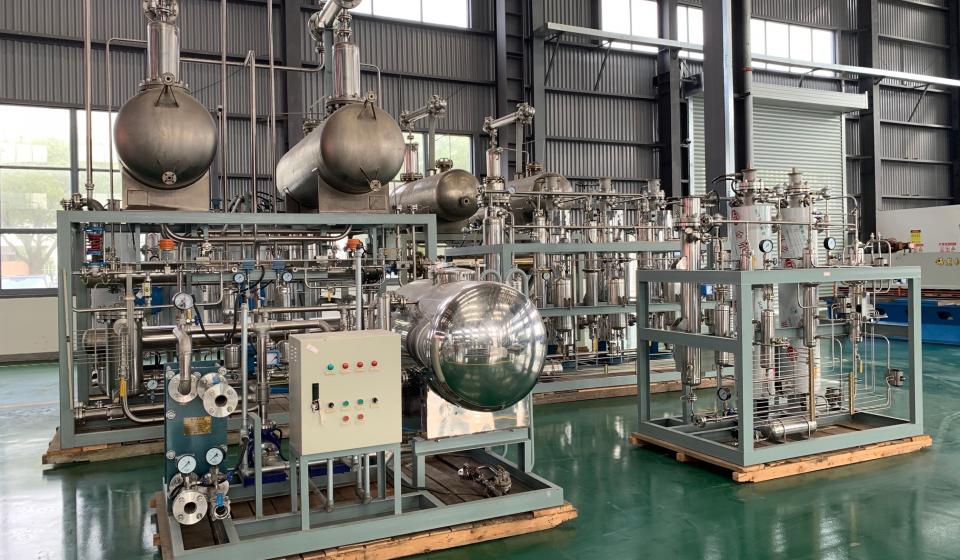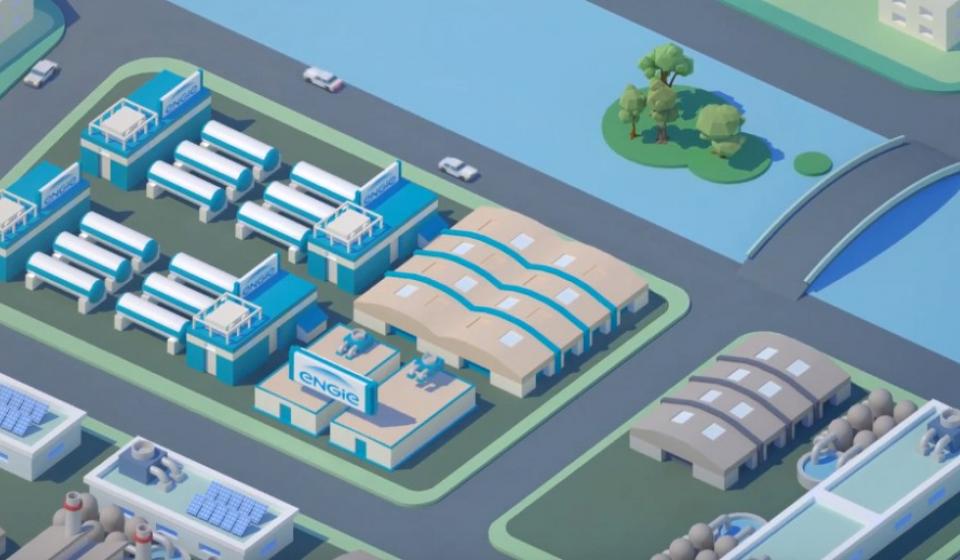ENGIE is fully committed to hydrogen, the missing link in the energy transition
The European Climate Goals require a serious energy transition within society. It is vital that the use of fossil fuels in industry, the mobility sector and households is substantially reduced. These fuels generate 75% of CO2-emissions. Hydrogen will be an important vector in the near future for accelerating this energy transition.
Hydrogen is the most commonly occurring element in the universe. It offers a range of options for playing a significant role in the energy transition. This clean fuel which is created via electrolysis* can not only make industrial processes carbon-free, but could also facilitate zero-emission cars or the storage of renewable energy. ENGIE aims to develop simple, sustainable solutions in these three domains in order to fulfil the ecological expectations of its customers.
Hydrogen can be made using surplus production from renewable solar and wind energy. In the longer term, we will have too much renewable energy. Electricity itself cannot be stored and renewable energy supplies are intermittent, however the conversion to hydrogen allows energy to be stored and mitigates any risks in relation to the function and stability of the electricity network.
When it comes to mobility, for example, ENGIE is working on pilot projects producing hydrogen for service vehicles which use fuel cells. Emissions from hydrogen vehicles are not polluting, as the waste product from electrolysis in vehicles is simply water.
We are also investigating whether we could set up a project involving buses running on hydrogen in Wallonia.
ENGIE is also a partner in GreenPorts in Zeebrugge along with Colruyt/Eoly, Hydrogenics, Fluxys, Elia and WaterstofNet. Together, they are examining the feasibility of converting electricity from wind farms in the North Sea into hydrogen and then injecting it into the gas network. It is cheaper to distribute hydrogen via pipelines than electricity via cables.
In order to ensure these projects have a chance of success, ENGIE is arguing for a clear regulatory framework for the production and use of hydrogen.
(*) Electrolysis: when sustainably produced electricity is released into water, it creates hydrogen and oxygen.
Articles and press releases

ENGIE and Carmeuse announce end of Columbus project due to economic and regulatory considerations
Our strategy to accelerate the energy transition

Carmeuse, ENGIE and John Cockerill join forces to reduce industrial CO2 emissions in Wallonia
